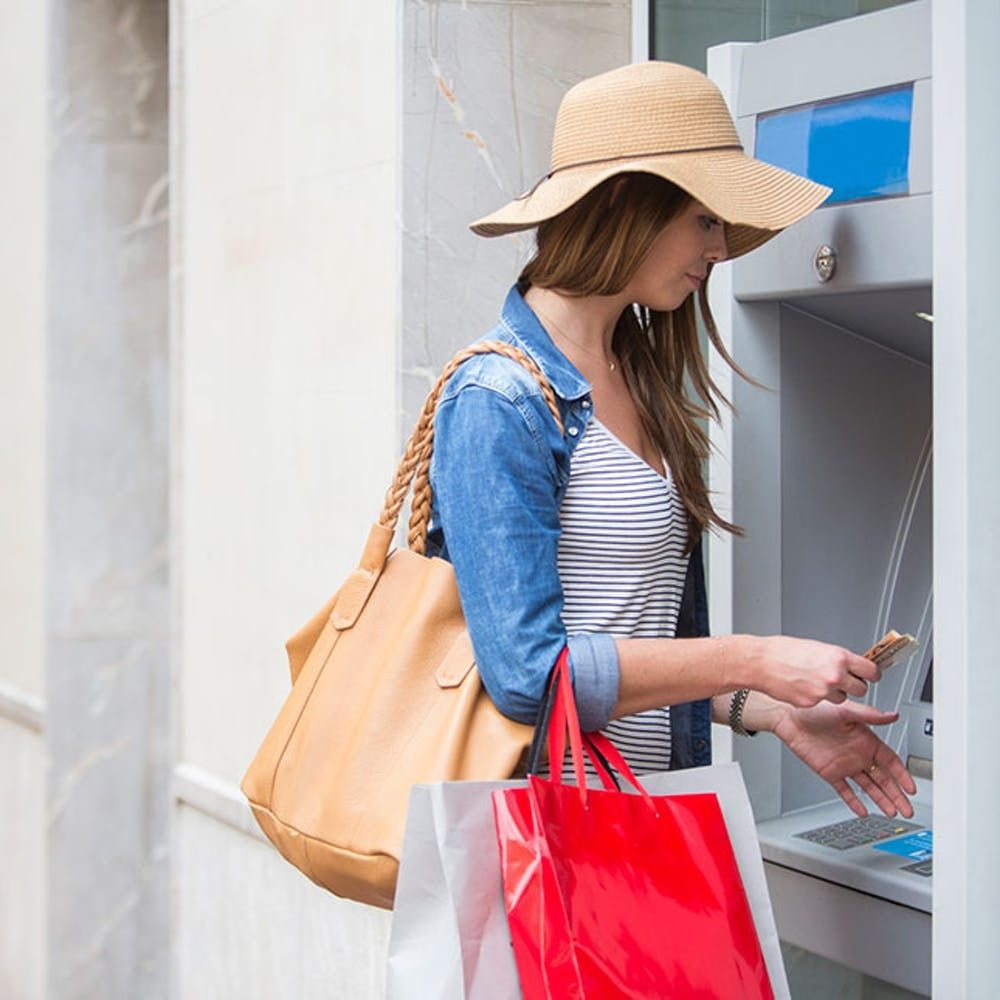We all like to think that we're keeping a pretty close eye on our money. After all, life is expensive, and being able to afford the extras requires smart budgeting. In order to stay on track and maintain control of your finances, you've probably developed some kind of system (or maybe even started using a budgeting app) that keeps you fully in the know about how much cash is coming in and how much is going out.
Even the most financially savvy among us, though, might be losing money without knowing it. While the individual amounts may be small, they add up over time, which makes all of your other efforts to save and budget somewhatfutile. We tapped into personal finance experts, including the team at Marcus by Goldman Sachs about the places where you're likely letting money slip away without even realizing it. Scroll down for all the details — then take control by eliminating this wasteful spending!
1. You're holding on to outdated appliances. That old-school refrigerator or stove might not look like something Joanna Gaines would choose for a renovated kitchen, but there are bigger problems at play as well. Older appliance models are not built efficiently, and they use a lot more electricity to do exactly the same job as a more modern counterpart. Large appliances may have a high ticket price, but if you make the investment now, you'll save money on your electric bill in the future.
2. You cancel a lot of rides. While our ride-share spending may be down right now, there are those days when you think you're about to leave and call yourself a ride from Lyft or Uber, only to find out moments later you are not quite ready. This is bound to happen occasionally, but keep in mind that ride-share apps typically charge a fee for rides canceled within a few minutes of the scheduled arrival time. Whenever possible, try to stick to your original plan so you can avoid these charges.
3. You never buy in bulk. If you find yourself cooking lots of rice or buying the same type of cereal from the supermarket on a weekly basis, you might be missing out on a prime opportunity for savings. You should consider buying items like these in bulk instead, whether online or at a wholesale store. When you're only buying a box or two of something at a time, the unit price might seem insignificant, but it adds up. You're better off purchasing items that you use consistently in larger quantities. You'll also have fewer things to remember for your weekly shopping list.
4. You overuse the ATM machine. ATM machines at supermarkets and drugstores often charge a fee to users for withdrawing cash. That seems a little counterproductive, doesn't it? It's one thing to lose a few dollars when you're really in a bind now and then, but you can cut back on this unnecessary expense by being more deliberate about only using ATM machines at your bank. You might also consider finding a bank or debit card that absorbs ATM fees. It's a big savings in the long run.
5. You don't take advantage of company benefits. It's easy to be up to speed on health insurance and other large programs, but are you taking advantage of corporate partnerships, neighborhood restaurant discounts, and transportation assistance? Those benefits are in place to help you save money in small amounts along the way.
6. You receive unnecessary subscriptions. Everyone loves getting packages in the mail, and it's exciting to receive a bountiful box of cosmetics, jewelry, or dog treats. Is there anything you can't get in a subscription box these days? We fully support treating yourself with a membership to one or two of these programs, but subscriptions are a great place to start if you're looking to cut your spending. Subscription companies earn money by requiring you to opt out — not in — of their services, so sit down and evaluate which of those recurring deliveries you're loving and which ones you wouldn't miss. Remember, you can always resubscribe in the future if you feel like you made a mistake!
How do you cut back on spending in small ways? Tweet us @BritandCo.
(Photo via Getty)
